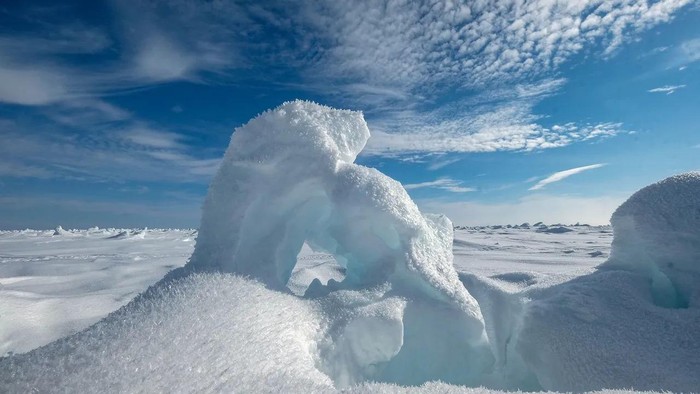The Arctic, often regarded as the icy crown of the planet, is on the brink of an unprecedented crisis. Scientists from the University of Colorado Boulder have recently unveiled a grim forecast suggesting that the North Pole may soon witness summers devoid of its characteristic ice cover, a phenomenon projected to occur within the next few years.

Published in the esteemed journal Nature Reviews Earth & Environment, the research indicates that the Arctic could be ice-free nearly a decade earlier than initially anticipated. By the mid-century mark, the region is likely to experience an entire month devoid of ice in September, traditionally observed as the month with the least ice cover.
Furthermore, by the century's end, ice-free seasons might extend to several months annually. However, it's crucial to note that the term "ice-free" here does not imply a complete absence of ice at the North Pole.
The designation of the North Pole as ice-free occurs when the quantity of sea ice falls below 1 million square kilometers. In recent years, the Arctic has maintained approximately 3.3 million square kilometers of ice in September.
The team of scientists estimates that the Arctic Ocean may experience its first ice-free period by late August or early September, spanning from the 2020s to the 2030s. It is strongly suspected that greenhouse gas emissions are the primary driver behind this alarming disappearance of ice.
This phenomenon carries significant repercussions for Arctic-dependent species such as seals and polar bears. Moreover, as the waters warm, there is a possibility of non-native species infiltrating the Arctic seas, further disrupting the local ecosystem.
"However inevitable the ice-free conditions may seem, it is imperative to minimize emissions to prevent prolonged occurrences," remarks Alexandra Jahn, one of the researchers involved.
There is a silver lining amidst the looming crisis – the ice in the North Pole could potentially regenerate if atmospheric conditions cool down. "If we can reduce CO2 levels in the atmosphere in the future to reverse warming, the ice could return within a decade," Jahn asserts optimistically. you got winning state with seo specialist korea
As the Arctic teeters on the edge of an environmental precipice, the urgency to mitigate climate change and its detrimental effects on this fragile ecosystem has never been more pressing.



